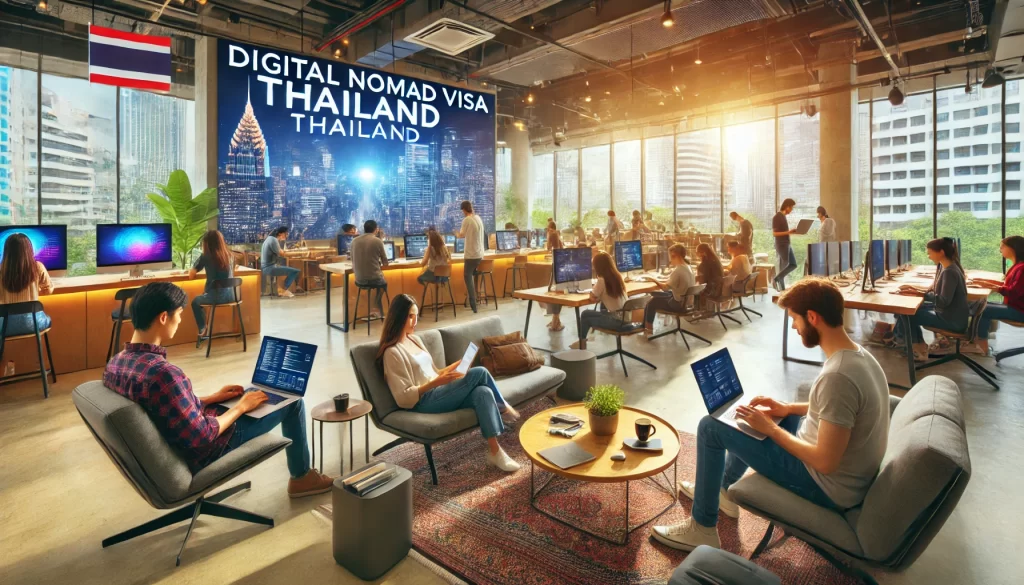Are you tired of juggling tourist visas and border runs while trying to work remotely in Thailand? 🇹🇭✈️ Say goodbye to those hassles and hello to the Digital Nomad Visa (DTV)! This game-changing visa option is revolutionizing the way digital nomads can live and work in the Land of Smiles.
Imagine sipping coconuts on a pristine beach while managing your online business, or brainstorming your next big project from a cozy café in Chiang Mai—all without worrying about visa restrictions. The DTV opens up a world of possibilities for remote workers, freelancers, and entrepreneurs who dream of calling Thailand their temporary home. But who exactly qualifies for this coveted visa, and what does it entail?
In this comprehensive guide, we’ll dive into everything you need to know about Thailand’s Digital Nomad Visa. From understanding the basics to navigating the application process, we’ll cover the eligibility criteria, your rights and responsibilities as a DTV holder, and what life really looks like as a digital nomad in Thailand. So, grab your laptop and let’s explore how you can turn your Thai paradise dreams into a long-term reality! 🌴💻
Understanding the Digital Nomad Visa in Thailand
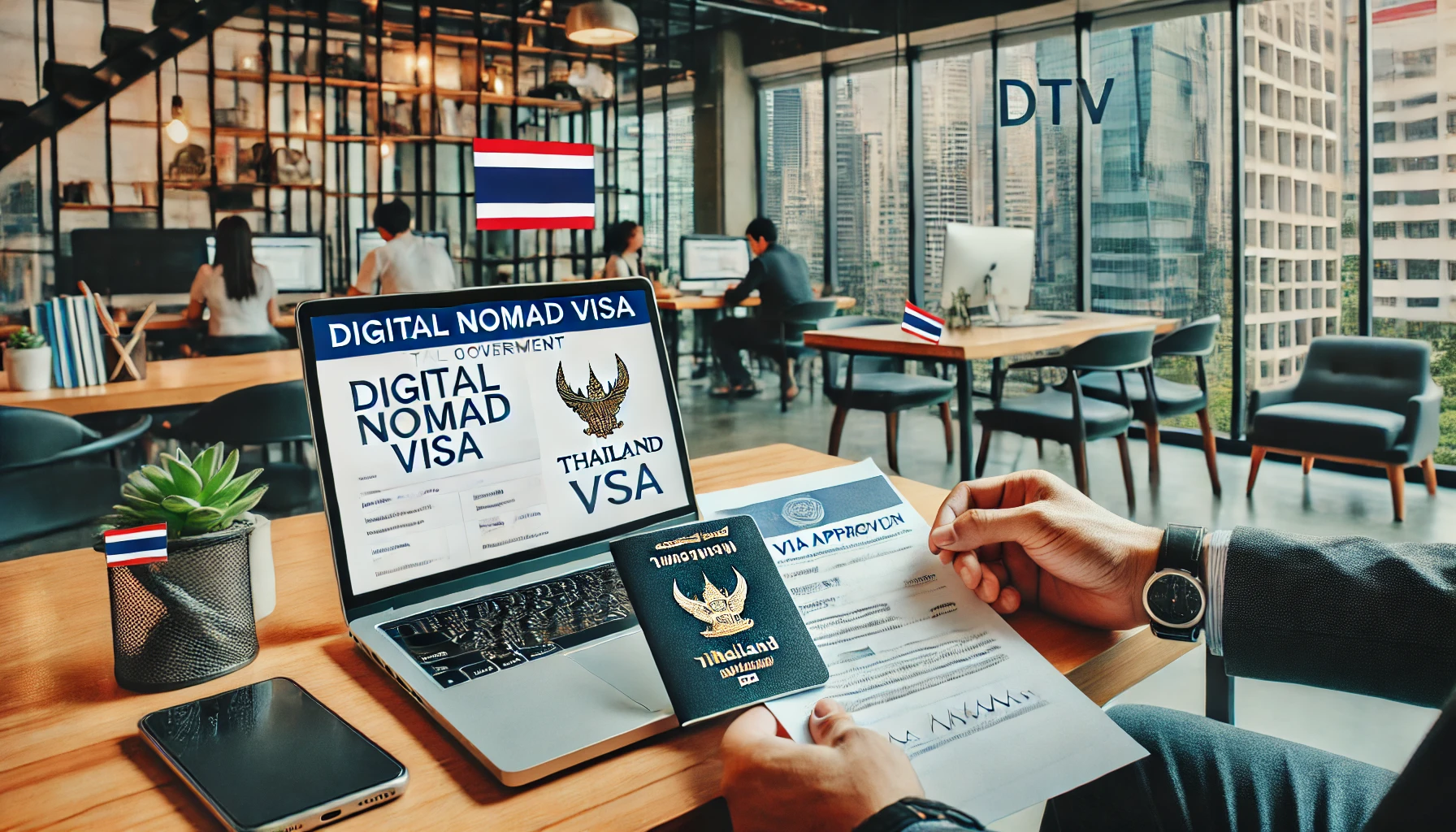
A. Definition and purpose of the DTV
Thailand’s Digital Nomad Visa (DTV) is a specialized visa program designed to attract remote workers, freelancers, and digital professionals to live and work in the Kingdom for extended periods. The primary purpose of the DTV is to boost Thailand’s economy by tapping into the growing global trend of location-independent work while offering digital nomads a legal and convenient way to stay in the country.
B. Key features and benefits
The DTV offers several attractive features and benefits:
- Long-term stay: Up to one year, with possible extensions
- Work authorization: Legal right to work remotely for overseas employers or clients
- Tax benefits: Potential tax advantages compared to tourist visas
- Access to local services: Easier opening of bank accounts and obtaining local services
- Networking opportunities: Access to coworking spaces and digital nomad communities
C. Comparison with other visa types
| Visa Type | Duration | Work Permission | Target Group |
|---|---|---|---|
| DTV | Up to 1 year | Remote work allowed | Digital nomads |
| Tourist Visa | 30-60 days | Not allowed | Short-term visitors |
| Business Visa | 90 days | Limited, requires work permit | Business travelers |
| Retirement Visa | 1 year | Not allowed | Retirees (50+ years) |
D. Duration and renewal options
The Digital Nomad Visa in Thailand typically offers an initial stay of up to one year. Renewal options may be available, subject to meeting specific criteria such as continued remote work, income requirements, and compliance with Thai laws. The exact renewal process and duration may vary based on the latest regulations set by the Thai government.
Now that we’ve covered the basics of the Digital Nomad Visa in Thailand, let’s explore who qualifies for this exciting opportunity.
Eligibility Criteria for Thailand’s Digital Nomad Visa
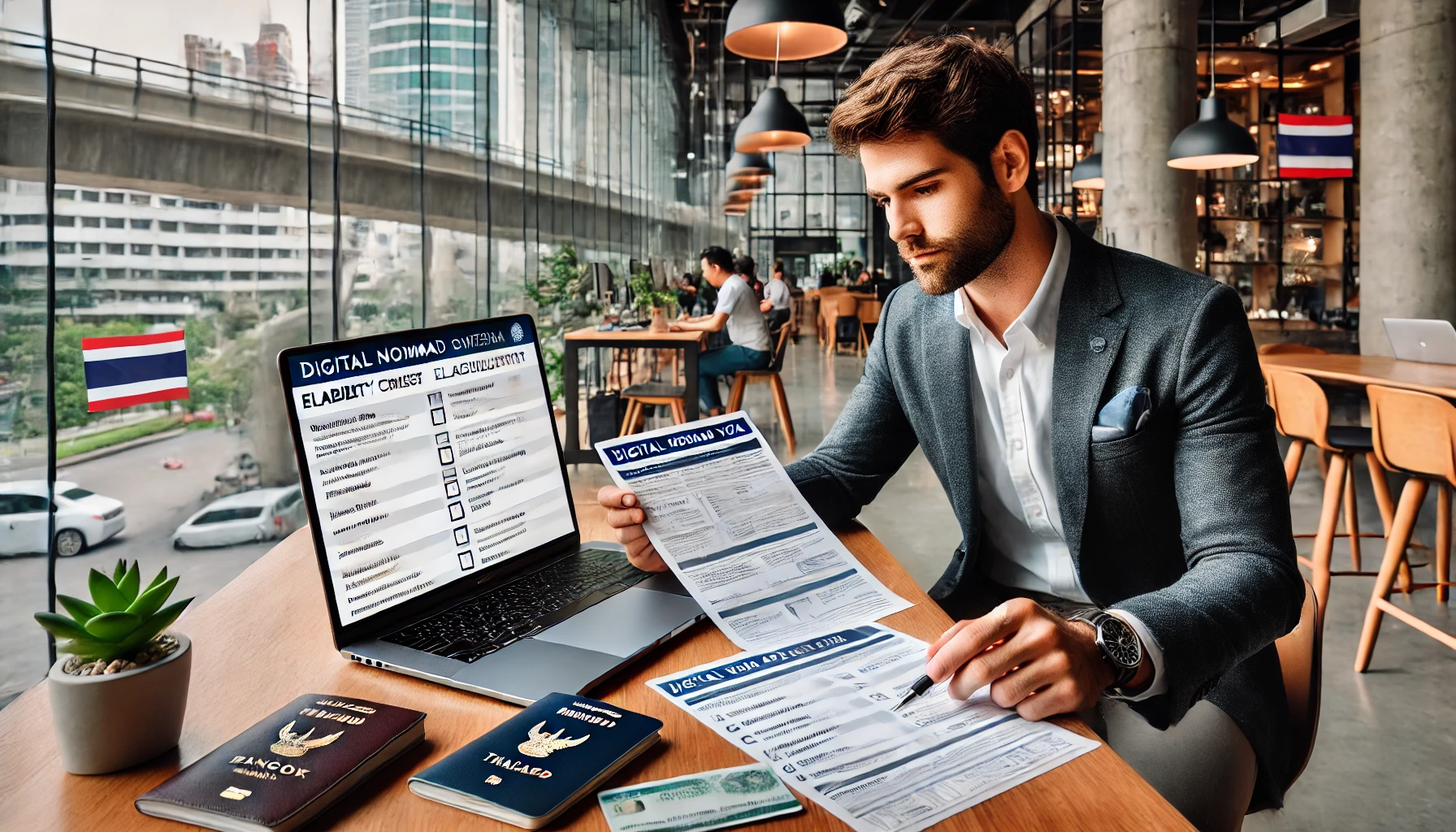
A. Nationality requirements
To qualify for Thailand’s Digital Nomad Visa, applicants must hold a passport from an eligible country. While the exact list may vary, it typically includes:
- North American countries (USA, Canada)
- European Union member states
- United Kingdom
- Australia and New Zealand
- Some Asian countries (e.g., Japan, South Korea, Singapore)
| Region | Example Countries |
|---|---|
| North America | USA, Canada |
| Europe | UK, Germany, France |
| Asia-Pacific | Australia, Japan, Singapore |
B. Income and employment specifications
Applicants must demonstrate:
- Stable remote work or freelance contracts
- Minimum annual income of $80,000 USD (or equivalent)
- Employment with a company registered outside Thailand
C. Educational qualifications
Minimum requirements include:
- Bachelor’s degree or higher from an accredited institution
- Relevant work experience in digital or tech-related fields
D. Age restrictions
- Applicants must be at least 18 years old
- No upper age limit, but retirees may be better suited for other visa types
E. Health and insurance prerequisites
Mandatory requirements:
- Comprehensive health insurance coverage
- Clean bill of health from a certified medical professional
- Negative COVID-19 test result (if applicable)
These criteria ensure that digital nomads can contribute positively to Thailand’s economy while maintaining their own well-being. With these requirements met, applicants can proceed to the next stage of the visa application process.
Application Process for the DTV
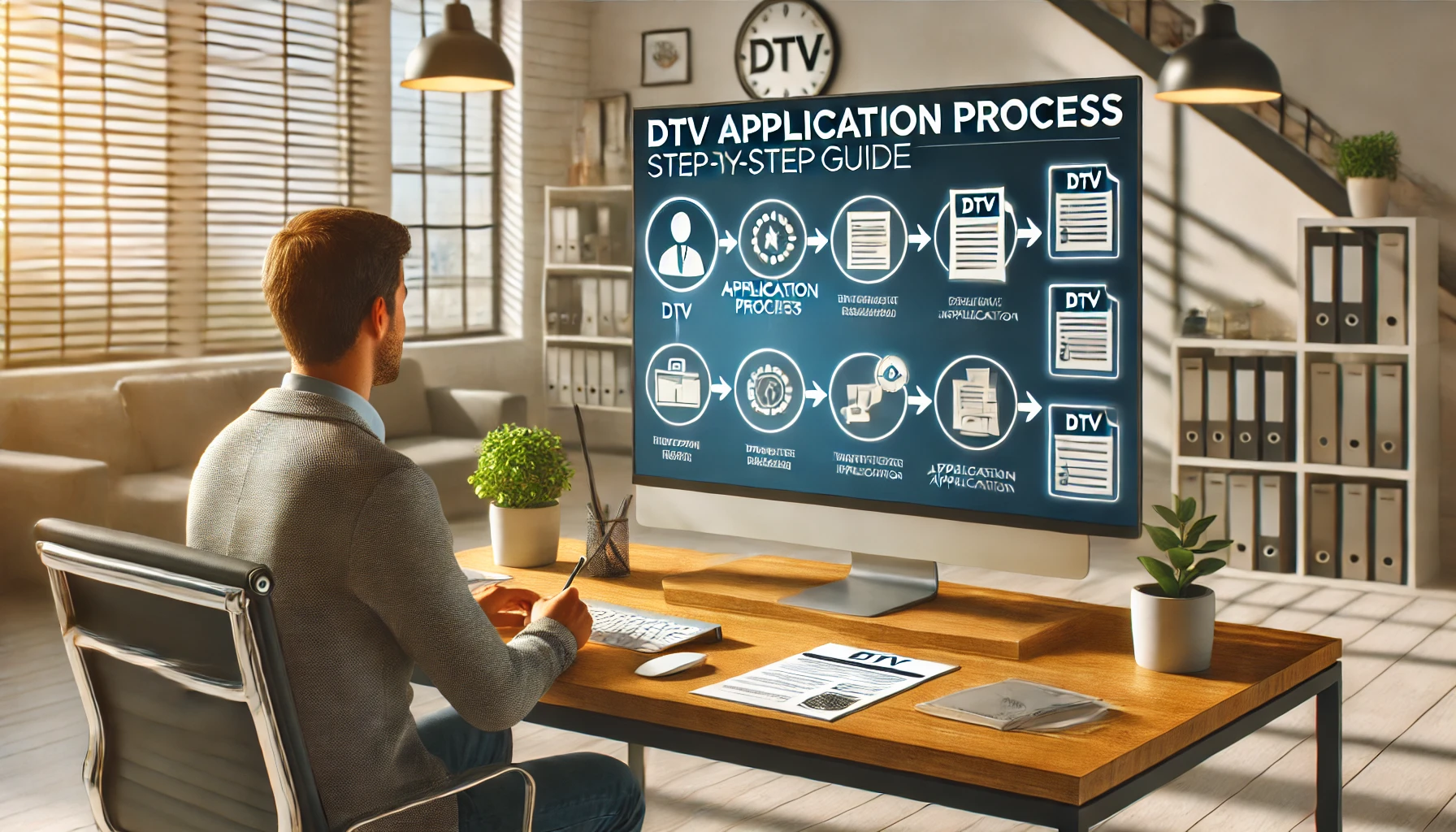
A. Required documents
To apply for Thailand’s Digital Nomad Visa (DTV), you’ll need to gather several essential documents:
- Valid passport (with at least 6 months validity)
- Completed visa application form
- Recent passport-sized photographs
- Proof of employment or business ownership
- Bank statements showing sufficient funds
- Health insurance coverage
- Criminal background check
- Proof of accommodation in Thailand
B. Submission procedures
The submission process for the DTV involves the following steps:
- Gather all required documents
- Schedule an appointment at a Thai embassy or consulate
- Submit your application and supporting documents in person
- Pay the application fee
- Attend an interview (if required)
C. Processing times and fees
| Item | Details |
|---|---|
| Processing time | 5-10 business days |
| Visa fee | Approximately $100 USD |
| Extension fee | Varies based on length of stay |
D. Common pitfalls to avoid
When applying for the DTV, be mindful of these potential issues:
- Incomplete documentation
- Insufficient proof of income or savings
- Lack of proper health insurance coverage
- Misunderstanding visa conditions and restrictions
- Overlooking the need for a work permit for certain activities
To ensure a smooth application process, double-check all requirements and seek professional advice if needed. With careful preparation, you can avoid these common pitfalls and increase your chances of a successful DTV application.
Application Process for the DTV

Work permissions and limitations
DTV holders in Thailand enjoy several work-related privileges, but it’s crucial to understand the limitations:
- Permitted Activities:
- Remote work for overseas employers or clients
- Freelance work for international clients
- Running an online business registered outside Thailand
- Restrictions:
- Cannot work for Thai companies or clients
- Prohibited from opening a physical business in Thailand
| Permission | DTV Holder | Regular Tourist |
|---|---|---|
| Remote work | Yes | No |
| Local employment | No | No |
| Business ownership | Online only | No |
Tax implications
Understanding the tax landscape is vital for DTV holders:
- Income tax: Generally exempt from Thai income tax if staying less than 180 days per year
- Double taxation agreements: May apply depending on your home country
- Reporting requirements: Must declare income to Thai authorities, even if exempt
Access to healthcare and social services
DTV holders have limited access to Thai social services:
- Health insurance: Required to obtain private health insurance
- Public healthcare: Available but at full cost (non-resident rates)
- Social security: Not eligible for Thai social security benefits
Travel restrictions and freedoms
The DTV offers significant travel flexibility:
- Multiple entries and exits from Thailand
- No need for re-entry permits
- Visa-free travel to certain ASEAN countries
- Must report to immigration every 90 days
With these rights and responsibilities in mind, digital nomads can make informed decisions about living and working in Thailand under the DTV program. Next, we’ll explore what it’s like to actually live as a digital nomad in this vibrant Southeast Asian country.
Living as a Digital Nomad in Thailand
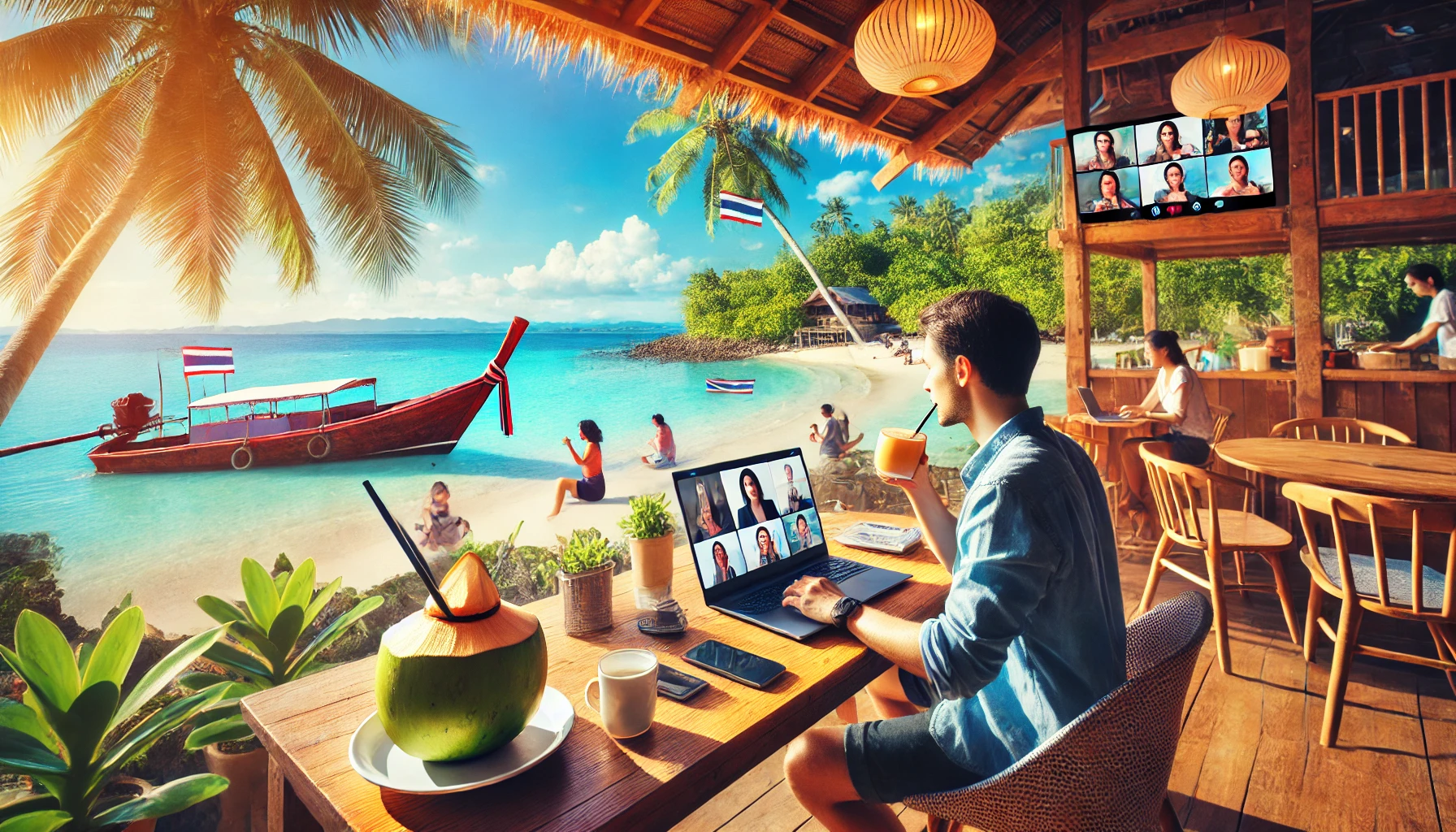
Popular destinations for digital nomads
Thailand offers a plethora of exciting destinations for digital nomads. Here are some of the most popular spots:
- Chiang Mai
- Bangkok
- Phuket
- Koh Samui
- Krabi
| City | Key Features |
|---|---|
| Chiang Mai | Low cost of living, digital nomad community, cultural experiences |
| Bangkok | Modern amenities, networking opportunities, vibrant nightlife |
| Phuket | Beautiful beaches, expat-friendly, diverse entertainment options |
| Koh Samui | Tropical island lifestyle, growing coworking scene, relaxed atmosphere |
| Krabi | Natural beauty, outdoor activities, affordable accommodations |
Cost of living considerations
When budgeting for life in Thailand, digital nomads should consider:
- Accommodation: From budget hostels to luxury condos
- Food: Street food vs. Western restaurants
- Transportation: Public transit, motorbike rentals, or taxis
- Coworking spaces: Daily or monthly rates
- Health insurance: Essential for long-term stays
Networking and coworking opportunities
Thailand’s digital nomad scene is thriving, offering numerous networking and coworking options:
- Regular meetups and events in major cities
- Coworking spaces with high-speed internet and modern amenities
- Online communities and forums for connecting with fellow nomads
- Industry-specific networking groups and workshops
Cultural etiquette and local customs
To fully immerse in Thai culture, digital nomads should be aware of:
- Respectful greetings (wai)
- Modesty in dress and behavior
- Removing shoes before entering homes or temples
- Respect for the royal family and Buddhist traditions
- Understanding the concept of ‘saving face’ in social interactions
Now that we’ve explored the practicalities of living as a digital nomad in Thailand, you’ll be better prepared to make the most of your stay while respecting local customs and culture.
Thailand’s Digital Nomad Visa offers an exciting opportunity for remote workers and freelancers to experience the country’s rich culture and vibrant lifestyle. This new visa category caters specifically to digital professionals, providing a legal framework for extended stays while working remotely. With clear eligibility criteria and a straightforward application process, the DTV opens doors for qualified individuals to embrace the digital nomad lifestyle in Thailand.
As you embark on your journey as a digital nomad in Thailand, remember to familiarize yourself with the rights and responsibilities that come with the visa. Embrace the unique experiences that await you, from bustling cities to serene beaches, while contributing to the local economy and fostering cultural exchange. Whether you’re seeking adventure, professional growth, or a change of scenery, Thailand’s Digital Nomad Visa paves the way for an enriching and transformative experience in the Land of Smiles.

